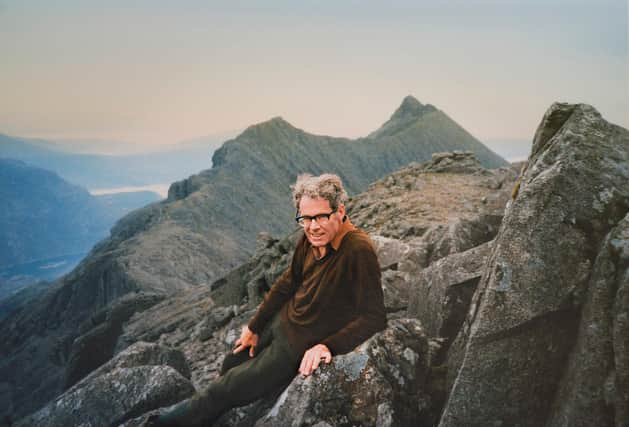Scotsman obituaries: John Llewelyn, respected Edinburgh University philosopher


In his “Departing from Logic; Returning to Wales”, John Llewelyn recalled in affectionate detail his origins in the Welsh village of Rogerstone, in particular the intellectual range of his librarian father.
From there his intellectual journey in philosophy was adventurous and always wholly original and marked by his determination to avoid what he called “intellectual claustrophobia”, a disease from which, he thought, the dominant strains of Oxford analytic philosophy suffered.
Advertisement
Hide AdAdvertisement
Hide AdHis peregrination took him to Provence, where he married Margaret, author of a book about Jane Austen and lifelong trainer of guide dogs for the blind. They shared a love of mountain walks and camping.
After a period of teaching and studying in Australia he joined the Philosophy Department of Edinburgh, a position from which he resigned about 1982 after some 30 years of brilliant and original teaching so as to concentrate his efforts more fully to writing on the unfashionable area of Continental Philosophy. During his years of teaching he devoted determined efforts to an unsuccessful attempt to prevent the desecration (as he saw it) of George Square by the replacement of most of its buildings by new University buildings.
He decided to learn Welsh (enabling him to write important philosophical articles in Welsh), adding to a remarkable range of languages (including French, German, Greek and Hebrew), a mastery of which he made constant fruitful use, pursuing complexities of meaning through intersecting etymologies in several of them.
After his resignation he published in 1985 “Beyond Metaphysics”, a study of Structuralism, the first of some 11 books. Notable among them are his study of Derrida, “Derrida on the Threshold of Sense” (1986), and five books on Emmanuel Levinas, to whose ethical idealism he responded by a critical and deeply serious extension of his thought.
He identified a “madness” beyond the range of reason in the concept of “imadgination” as essential to both ethics and aesthetics. He extended Levinas’s humanist concentration on the ethical response to the Other Man by arguing in “The Rigor of a certain Inhumanity” that animals, too, required from us an ethical response, a view which led him to foreground ecological thought long before it was fashionable. I well recall his anxious determination to check with the cook whether some soup he might consume contained even the slightest vestige of animal products, and he needed some convincing before he accepted that prawn crackers don’t contain extract of prawn.
He wrote several philosophical discussions of religion, always hovering on the edge of religious faith without quite falling into it. Notable here is his “Margins of Religion” (2009).
Late in his life he undertook a profound study of Gerard Manley Hopkins, “Gerard Manley Hopkins and the Spell of John Duns Scotus” (2015), which makes startling use of phenomenological description of a bird’s flight to interpret Hopkins’ baffling concepts of inscape and outscape, bringing out the possibility of wholly individualised use of language avoiding all recourse to generality.
He would constantly strike up casual friendships with people he encountered. He was always cheerful, friendly and warm, but beneath this warmth he was intensely serious.
Advertisement
Hide AdAdvertisement
Hide AdWhile we were walking beside the higher reaches of the Dee, and I was delighting in the scents and in the distant views of the southern Cairngorms, I remember him suddenly asking me whether I thought it was ever possible to be happy. He could not rid his awareness, even temporarily, of the sufferings of men and women in the Holocaust, even though he loved the mountains. He was a tough climber. On that walk we forded the Dee wetly together.
On a descent from the second abseil he ever made (from the Inaccessible Pinnacle), a falling stone broke his finger. I didn’t realise what had happened, and he only revealed the pain he was in after two hours, so as to get me to stop at the cottage hospital.
He loved music; he was indefatigable in his pursuit of any concert by a countertenor. In the USA for a philosophical conference he joined delightedly in his hosts’ love of jazz, in Nashville.
He responded sensitively to poetry, writing illuminating introductions to little books by poets he liked. He was extremely curious about the circle of Scottish poets of the Sixties when he learned that my wife had known them. But his central enthusiasm was a patriotic love of Welsh literature and culture. “Returning to Wales” indeed.
At the age of 93, living in the Marian House Care Home, he was quite blind and so unable to read, but – a nurse there told me – he was always a perfect gentleman, courteous and considerate. Edinburgh will not see his like again.
Obituaries
If you would like to submit an obituary, or have a suggestion for a subject, contact [email protected]
A message from the Editor
Thank you for reading this article. We're more reliant on your support than ever as the shift in consumer habits brought about by coronavirus impacts our advertisers. If you haven't already, please consider supporting our trusted, fact-checked journalism by taking out a digital subscription.
